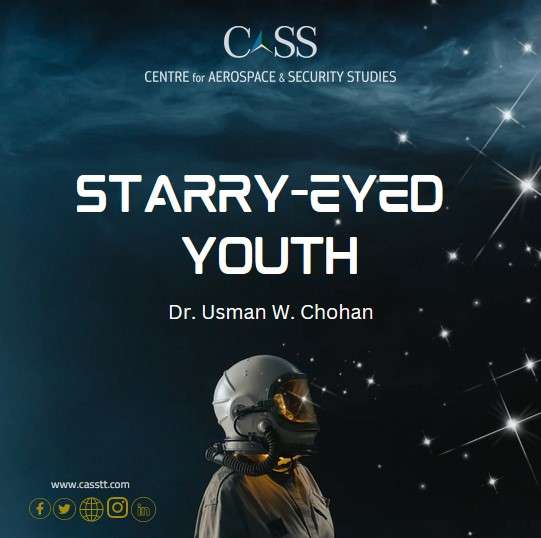A recent large-scale space-related tournament known as the NASA 2023 Space Apps Challenge took place amid great fanfare around the world, and what was most exciting about the space-technology competition was the significant contingent of youth teams from Pakistan. Their enthusiasm for participating in the global tournament, and for solving complex spatial challenges set out by NASA, brimmed with promise and gave a unique insight into the vast potential for scientific engagement by Pakistan’s youth. The aim of the Space Apps Challenge was to ask teams of young students (largely school-going or early-stage university) from around the world to tackle any of the 30 complex specifically designated problems for NASA, ranging from addressing technical consequences and detection capabilities of Magnetic Solar Radiation to developing anticipatory systems for disaster management using aerospace technologies, among others.
The overall competition had more than 57,000 registered participants split into 8,700 teams from 152 countries, who submitted more than 5,500 projects. 13 International Space Agencies also partnered with NASA for the international challenge, and there were 400 local-level events around the world to host competitors for the challenges, including well-organised, and vibrant, and local events in Pakistan. In fact, Pakistan was among the top five countries in terms of the number of registrants in the competition, along with Brazil, Turkey, Egypt, and India.
The local event brought in many youth teams from across the country, including from less privileged areas, with the most promising teams making presentations that tackled various NASA App challenges, with many submissions addressing Magnetic Solar Radiation. As one of the judges, this event led me to three broad conclusions:
- The scope of enthusiasm for aerospace-related technologies is much larger in Pakistan than one might think, and young people have pursued this area of interest at their own behest, supported by civil society initiatives.
- A young cohort of aerospace enthusiasts is quickly coming of age and will be able to help fill the human resource requirements of specialist research organisations such as CASS in the years to come.
- Despite the technical barriers to entry that are a necessary feature of large-scale space programmes, the youth in Pakistan is undeterred and has great enthusiasm for engagement with the aerospace domain.
These observations augur well for the aerospace future of Pakistan. It increasingly appears that we are addressing the systemic barriers to scientific engagement: motivation, funding, technical expertise, and emergent human resource (as evidenced in this competition). I see a brighter future in the aerospace domain for our starry-eyed youth.
Dr Usman W. Chohan is Advisor (Economic Affairs and National Development) at the Centre for Aerospace & Security Studies, Islamabad, Pakistan. He can be reached at [email protected].





